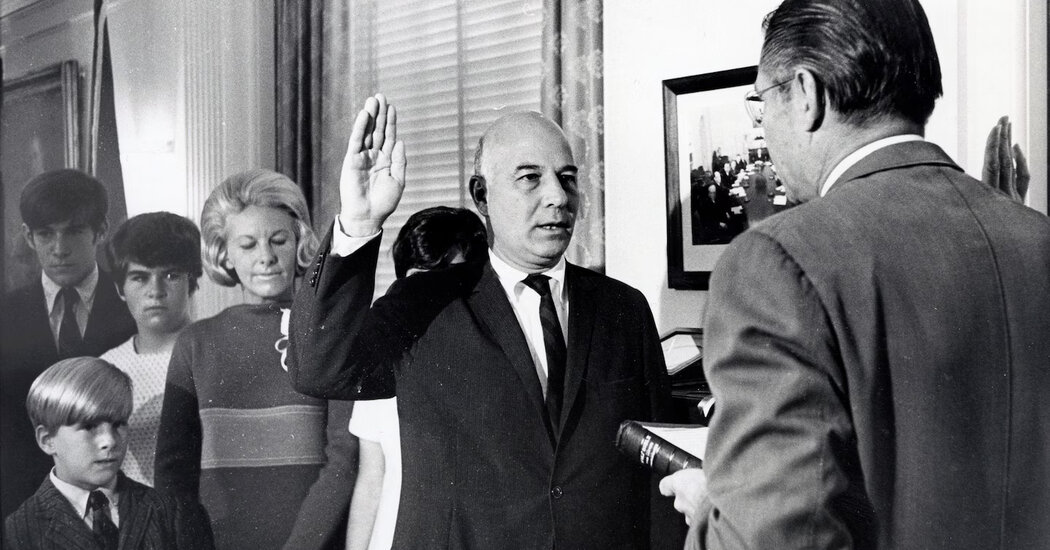Copyright Deadline

Erica Wang Min-hui, CEO of Taiwan Creative Content Agency (TAICCA), has just overseen her first edition of the government-backed agency’s flagship event, Taiwan Creative Content Fest (TCCF), but she is no stranger to the organisation and its various activities. Wang joined TAICCA in August, previously holding the post of Deputy General Manager of PwC Taiwan, where she was involved in overseeing the agency’s deployment of funding from Taiwan’s National Development Fund (NDF). She joined TAICCA shortly after Sue Wang Shih-sze, who also serves as Taiwan’s Deputy Minister of Culture, was appointed as chair, replacing Homme Tsai who left the agency at the end of May. Established in 2019, TAICCA is funded by Taiwan’s Ministry of Culture and also manages capital from the NDF, a government investment fund founded in the 1970s to help develop the Taiwanese economy. At the time of its launch, TAICCA secured $323M (NT$10BN) from the NDF and was recently granted a second tranche of $323M. Sitting down with Deadline at TCCF, Wang explains that TAICCA has three main objectives: “The first one is to industrialise Taiwan’s content production, the second is to build scale, as we have many micro studios working alone in Taiwan, and the third is to build international connections.” TCCF, the six-year-old pitching, market and forum event that took place this week at Taipei Nangang Exhibition Centre, helps facilitate all three objectives – particularly the last one, by bringing in international partners and supporting co-productions and other forms of collaboration. This year, large delegations came from France and Korea, mostly via pavilions hosted by French institutions and Korea Creative Content Agency (KOCCA), in addition to a growing number of participants from Southeast Asia and Japan. During the four days of the market, TAICCA signed a slew of MoUs with local and international companies, including Japan’s K2 Pictures and Taiwan’s Lunta Ventures, to explore future collaboration. “The MoU is the first step to confirm we have the will to work together. We will then discuss more solid details and operate based on individual agreements,” Wang explains. Earlier in the week, TAICCA also announced co-investment in two content funds with local and international partners: a $30M fund established with CJ ENM Hong Kong and Taiwan’s Far EasTone Telecom and TVBS Media; and a $20M fund with Far EasTone and Fubon Cultural Creative. On the last day of the event, TAICCA also announced that it is co-investing in a new Taiwanese production outfit, Mirror Entertainment, with local publisher and producer Mirror Fiction. Beyond the headlines, few could argue that Taiwan’s film and TV industries are fragmented and lack large-scale studios and financing resources, at least compared to larger neighbours such as Japan and South Korea. Despite that, it’s an industry that regularly scores artistic successes – this year with Tsou Shi-Ching’s Left-Handed Girl screening in Cannes and Shu Qi’s Girl in Venice – while Taiwanese drama series continue to attract investment from Netflix and local streamers. But Taiwan is a relatively small market for either cinema or streaming, with a box office that has been lacklustre since the pandemic, despite the recent success of local action thriller 96 Minutes, which grossed $6M in September. As with other mid-sized mature markets in the region, local content usually needs to supplement domestic revenues with international distribution. Wang explains that Japan and Korea are natural targets for Taiwanese producers as they’re large and relatively mature markets with cultural similarities. “They’re also a role model we can learn from, especially on the technology side, and we also wish to expand our market there,” she says. “We’re also looking at Southeast Asian markets for co-production, co-funding, and expanding the market as whole.” France makes sense, Wang says, because of shared values and close cooperation in an area that both countries excel in – immersive content production. Last year, augmented reality work Colored (Noire), co-produced by France and Taiwan, won Best Immersive Work at the Cannes film festival. Around half of the French companies attending TCCF this year are involved in the immersive space. Taiwanese VR and AR works are also regularly selected for and win awards at other international film festivals. As an island that makes most of the world’s advanced semiconductors, it’s perhaps not surprising that Taiwan has established a lead in VR and AR content production, and TAICCA is now hoping to position Taiwan at the forefront of another tech frontier – AI-assisted filmmaking. Wang says conversations are ongoing with Taiwanese companies about how to apply AI in content production. “These companies are interested in co-investing in joint ventures with TAICCA to explore this space. We may also invite some foreign companies to join the equity pool. We will also need international cloud and other technology providers to input resources,” Wang says. One area that TAICCA appears to have steered away from, however, is the co-funding of international prestige cinema. Among its many funding programmes, the agency has an international co-production fund, Taiwan International Co-funding Program (TICP), that in its early days was involved in co-financing a wide range of Asian and European arthouse films. The fund has always offered equity investment that needs to be repaid, rather than grants or subsidies, but changed its funding criteria in early 2024. TICP now mostly draws funds from the NDF, rather than TAICCA internal or Ministry of Culture sources, imposing strict rules on investment criteria and recoupment, resulting in a focus on more commercial projects than the fund had in its early days. Increasingly, local producers find it difficult to combine this kind of equity-based funding with the grants and subsidy systems normally used for European and other international co-productions. Wang explains this approach is necessary because TAICCA is focused on building a Taiwanese content industry, rather than supporting Taiwanese culture or soft power, which is more the remit of the Ministry of Culture. While the projects TAICCA co-produces are designed to benefit the Taiwanese content infrastructure in some way, they also need to have a very clear business strategy. “We look at three elements when assessing an application: firstly, the team needs to clarify how they will position their project in the market; then they need to have a very clear strategy on marketing and distribution; and thirdly they need to have a clear plan on how to recoup,” Wang explains. “We do not set any limits on genre and format but TAICCA’s foundation is investment and it’s important to keep the market in mind.” Looking beyond the international territories that TAICCA is already working with, Wang says there is scope for Taiwan to collaborate more closely with North America. The agency has already started outreach in the immersive space – collaborating with Canada’s Oasis Immersion and Miami-based FilmGate on VR/AR exhibitions and supporting Canada-Taiwan immersive co-production Blur. Beyond this, Wang says TAICCA is open to exploring other forms of collaboration with companies in the US and Canada, and broadly has two methods of working with foreign entities: “The first approach is we can commit to co-produce a certain number of projects over a set time frame, say we do two to four productions together over the next two years, ideally with the participation of Taiwanese local producers. “Then the second approach is we can encourage international companies to establish a company in Taiwan. We could co-invest and become a shareholder of the Taiwan company, assigning a board member to represent the National Development Fund.” As with TAICCA’s other programmes, the overarching aim would be to strengthen and scale up Taiwan’s content industries through international collaboration. This more business-oriented approach has recently been adopted by other government-backed film and TV agencies in Asia, including Singapore and the Philippines, but puts Asia on a different track to the funding strategies of governments in Europe. TCCF wraps today (November 7) with an awards ceremony for its Pitching component, which presented 56 projects and 38 published works to potential partners and investors.



